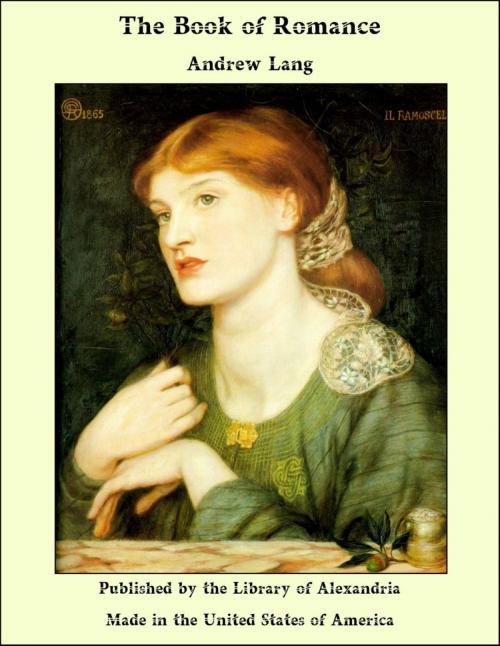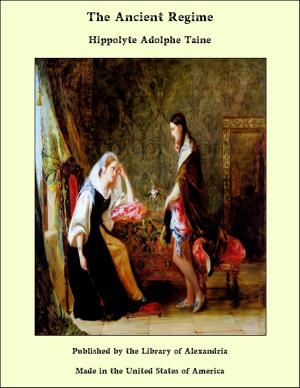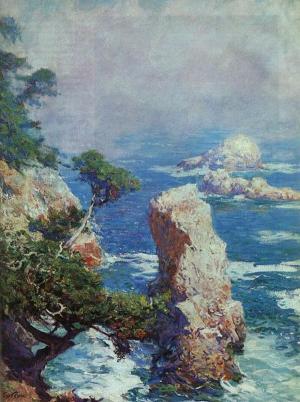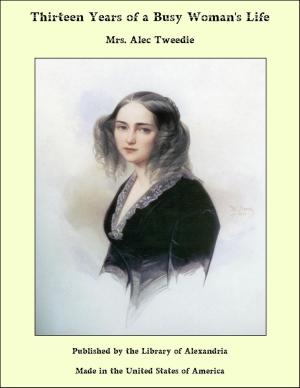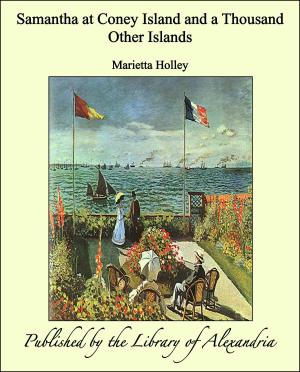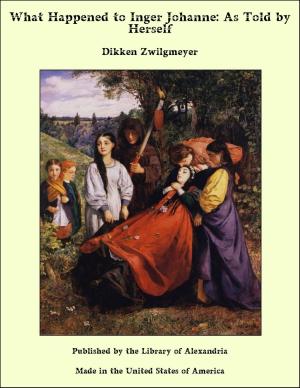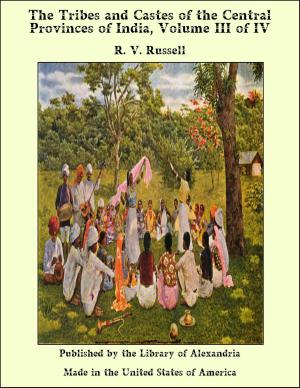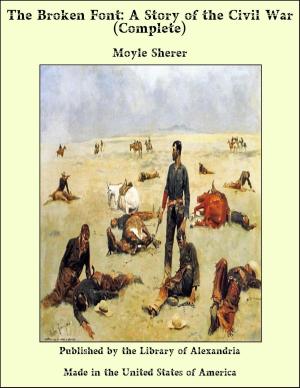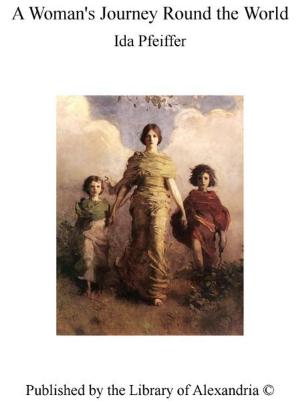| Author: | Andrew Lang | ISBN: | 9781613103753 |
| Publisher: | Library of Alexandria | Publication: | March 8, 2015 |
| Imprint: | Language: | English |
| Author: | Andrew Lang |
| ISBN: | 9781613103753 |
| Publisher: | Library of Alexandria |
| Publication: | March 8, 2015 |
| Imprint: | |
| Language: | English |
It is to be supposed that children do not read Prefaces; these are Bluebeard's rooms, which they are not curious to unlock. A few words may therefore be said about the Romances contained in this book. In the editor's opinion, romances are only fairy tales grown up. The whole mass of the plot and incident of romance was invented by nobody knows who, nobody knows when, nobody knows where. Almost every people has the Cinderella story, with all sorts of variations: a boy hero in place of a girl heroine, a beast in place of a fairy godmOther, and so on. The Zuñis, an agricultural tribe of New Mexico, have a version in which the moral turns out to be against poor Cinderella, who comes to an ill end. The Red Indians have the tale of Orpheus and Eurydice, told in a very touching shape, but without the music. On the Other hand, the negroes in the States have the Orpheus tale, adapted to plantation life, in a form which is certainly borrowed from Europeans. This version was sent to me some years ago, by Mr. Barnet Phillips, Brooklyn, New York, and I give it here for its curiosity. If the proper names, Jim Orpus and Dicey, had not been given, we might not feel absolutely certain that the story was borrowed. It is a good example of adaptation from the heroic age of Greece to the servile age of Africans. Dicey and Orpus Dat war eber so long ago, 'cause me granmammy tell me so. It h'aint no white-folks yarn—no Sah. Gall she war call Dicey, an' she war borned on de plantation. Whar Jim Orpus kum from, granmammy she disremember. He war a boss-fiddler, he war, an' jus' that powerful, dat when de mules in de cotton field listen to um, dey no budge in de furrer. Orpus he neber want no mess of fish, ketched wid a angle. He just take him fiddle an' fool along de branch, an' play a tune, an' up dey comes, an' he cotch 'em in he hans. He war mighty sot on Dicey, an' dey war married all proper an' reg'lar. Hit war so long ago, dat de railroad war a bran-new spick an' span ting in dose days. Dicey once she lounge 'round de track, 'cause she tink she hear Orpus a fiddlin' in de fur-fur-away. Onyways de hengine smash her. Den Jim Orpus he took on turrible, an' when she war buried, he sot him down on de grave, an' he fiddle an' he fiddle till most yo' heart was bruk. An' he play so long dat de groun' crummle (crumble) an' sink, an' nex' day, when de peoples look for Jim Orpus, dey no find um; oney big-hole in de lot, an' nobody never see Jim Orpus no mo'. An' dey do say, dat ef yo' go inter a darky's burial-groun', providin' no white man been planted thar, an' yo' clap yo' ear to de groun', yo' can hear Jim's fiddle way down deep belo', a folloin' Dicey fru' de lan' of de Golden Slippah. The original touch, the sound of Orpus's fiddle heard only in the graveyards of the negroes (like the fairy music under the fairy hill at Ballachulish), is very remarkable. Now the Red Indian story has no harper, and no visit by the hero to the land of the dead. His grief brings his wife back to him, and he loses her again by breaking a taboo, as Orpheus did by looking back, a thing always forbidden. Thus we do not know whether or not the Red Indian version is borrowed from the European myth, probably enough it is not. But in no case—not even when the same plot and incidents occur among Egyptians and the Central Australian tribes, or among the frosty Samoyeds and Eskimo, the Samoans, the Andamanese, the Zulus, and the Japanese, as well as among Celts and ancient Greeks—can we be absolutely certain that the story has not been diffused and borrowed, in the backward of time. Thus the date and place of origin of these eternal stories, the groundwork of ballads and popular tales, can never be ascertained. The oldest known version may be found in the literature of Egypt or Chaldæa, but it is an obvious fallacy to argue that the place of origin must be the place where the tale was first written down in hieroglyph or cuneiform characters
It is to be supposed that children do not read Prefaces; these are Bluebeard's rooms, which they are not curious to unlock. A few words may therefore be said about the Romances contained in this book. In the editor's opinion, romances are only fairy tales grown up. The whole mass of the plot and incident of romance was invented by nobody knows who, nobody knows when, nobody knows where. Almost every people has the Cinderella story, with all sorts of variations: a boy hero in place of a girl heroine, a beast in place of a fairy godmOther, and so on. The Zuñis, an agricultural tribe of New Mexico, have a version in which the moral turns out to be against poor Cinderella, who comes to an ill end. The Red Indians have the tale of Orpheus and Eurydice, told in a very touching shape, but without the music. On the Other hand, the negroes in the States have the Orpheus tale, adapted to plantation life, in a form which is certainly borrowed from Europeans. This version was sent to me some years ago, by Mr. Barnet Phillips, Brooklyn, New York, and I give it here for its curiosity. If the proper names, Jim Orpus and Dicey, had not been given, we might not feel absolutely certain that the story was borrowed. It is a good example of adaptation from the heroic age of Greece to the servile age of Africans. Dicey and Orpus Dat war eber so long ago, 'cause me granmammy tell me so. It h'aint no white-folks yarn—no Sah. Gall she war call Dicey, an' she war borned on de plantation. Whar Jim Orpus kum from, granmammy she disremember. He war a boss-fiddler, he war, an' jus' that powerful, dat when de mules in de cotton field listen to um, dey no budge in de furrer. Orpus he neber want no mess of fish, ketched wid a angle. He just take him fiddle an' fool along de branch, an' play a tune, an' up dey comes, an' he cotch 'em in he hans. He war mighty sot on Dicey, an' dey war married all proper an' reg'lar. Hit war so long ago, dat de railroad war a bran-new spick an' span ting in dose days. Dicey once she lounge 'round de track, 'cause she tink she hear Orpus a fiddlin' in de fur-fur-away. Onyways de hengine smash her. Den Jim Orpus he took on turrible, an' when she war buried, he sot him down on de grave, an' he fiddle an' he fiddle till most yo' heart was bruk. An' he play so long dat de groun' crummle (crumble) an' sink, an' nex' day, when de peoples look for Jim Orpus, dey no find um; oney big-hole in de lot, an' nobody never see Jim Orpus no mo'. An' dey do say, dat ef yo' go inter a darky's burial-groun', providin' no white man been planted thar, an' yo' clap yo' ear to de groun', yo' can hear Jim's fiddle way down deep belo', a folloin' Dicey fru' de lan' of de Golden Slippah. The original touch, the sound of Orpus's fiddle heard only in the graveyards of the negroes (like the fairy music under the fairy hill at Ballachulish), is very remarkable. Now the Red Indian story has no harper, and no visit by the hero to the land of the dead. His grief brings his wife back to him, and he loses her again by breaking a taboo, as Orpheus did by looking back, a thing always forbidden. Thus we do not know whether or not the Red Indian version is borrowed from the European myth, probably enough it is not. But in no case—not even when the same plot and incidents occur among Egyptians and the Central Australian tribes, or among the frosty Samoyeds and Eskimo, the Samoans, the Andamanese, the Zulus, and the Japanese, as well as among Celts and ancient Greeks—can we be absolutely certain that the story has not been diffused and borrowed, in the backward of time. Thus the date and place of origin of these eternal stories, the groundwork of ballads and popular tales, can never be ascertained. The oldest known version may be found in the literature of Egypt or Chaldæa, but it is an obvious fallacy to argue that the place of origin must be the place where the tale was first written down in hieroglyph or cuneiform characters
